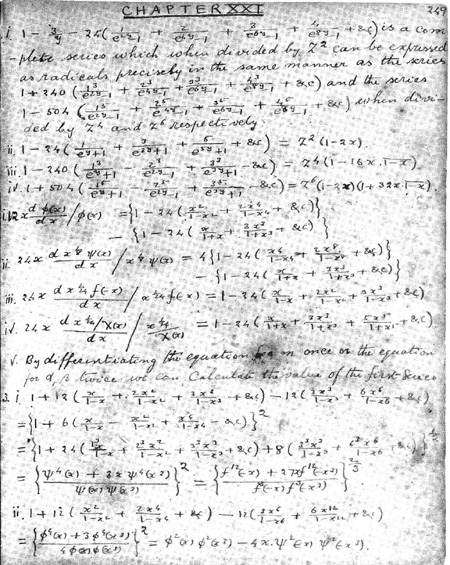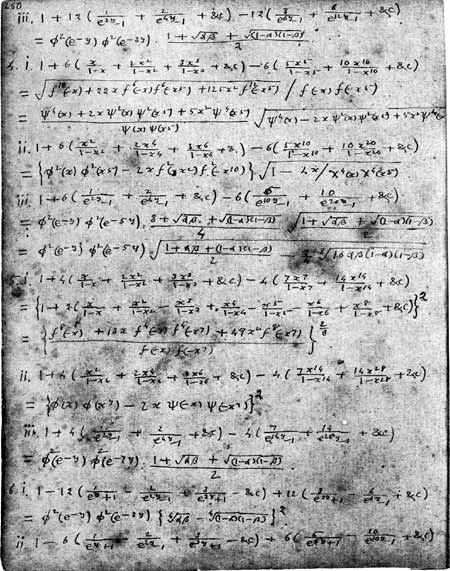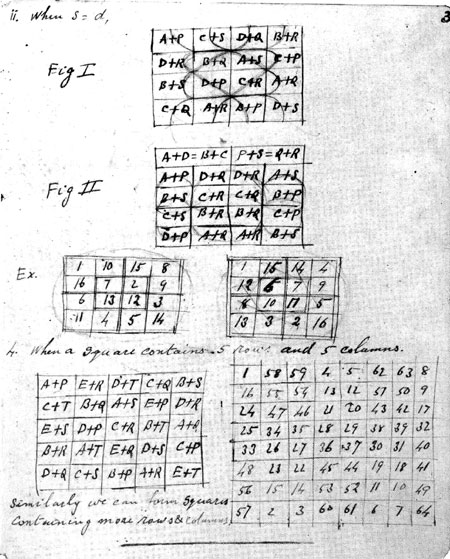- About MAA
- Membership
- MAA Publications
- Periodicals
- Blogs
- MAA Book Series
- MAA Press (an imprint of the AMS)
- MAA Notes
- MAA Reviews
- Mathematical Communication
- Information for Libraries
- Author Resources
- Advertise with MAA
- Meetings
- Competitions
- Programs
- Communities
- MAA Sections
- SIGMAA
- MAA Connect
- Students
- MAA Awards
- Awards Booklets
- Writing Awards
- Teaching Awards
- Service Awards
- Research Awards
- Lecture Awards
- Putnam Competition Individual and Team Winners
- D. E. Shaw Group AMC 8 Awards & Certificates
- Maryam Mirzakhani AMC 10 A Awards & Certificates
- Two Sigma AMC 10 B Awards & Certificates
- Jane Street AMC 12 A Awards & Certificates
- Akamai AMC 12 B Awards & Certificates
- High School Teachers
- News
You are here
Mathematical Treasure: Ramanujan’s “Lost” Notebooks
Srinivasa Ramanujan (1887–1920) was an Indian mathematician who lived under British colonial rule. His mathematical talents emerged very early in his life, and he is known as one of the greatest mathematical prodigies in history. In 1914, G.H. Hardy, who recognized his talent, brought him to Cambridge University for university study. Ramanujan was extremely versatile and contributed to many areas of mathematics, including analysis and number theory. Unfortunately, he contracted tuberculosis in England and died at an early age.
Much of his work was done in simple student copybooks. Three of these books were discovered after his death. They became known as “ Ramanujan’s Lost Notebooks” and have since been studied, further revealing the man’s mathematical genius. A few pages from the notebooks are shown below.






These images were provided by K. Srinivasa Rao of The Institute of Mathematical Sciences, Chennai, India, from his website on the life and work of Ramanujan.
References
Rao, K. Srinivasa. 2000. Life and Work of the Mathemagician Srinivasa Ramanujan. arXiv.org.
Rao, K. Srinivasa. 2021. Srinivasa Ramanujan: Life and Work of a Natural Mathematical Genius. Springer. See also the MAA Review.
Srinivasa Ramanujan. Wikipedia.
Wolfram, Stephen. 2016, April 27. Who Was Ramanujan? Writings.
Frank J. Swetz (The Pennsylvania State University), "Mathematical Treasure: Ramanujan’s “Lost” Notebooks," Convergence (February 2023)




